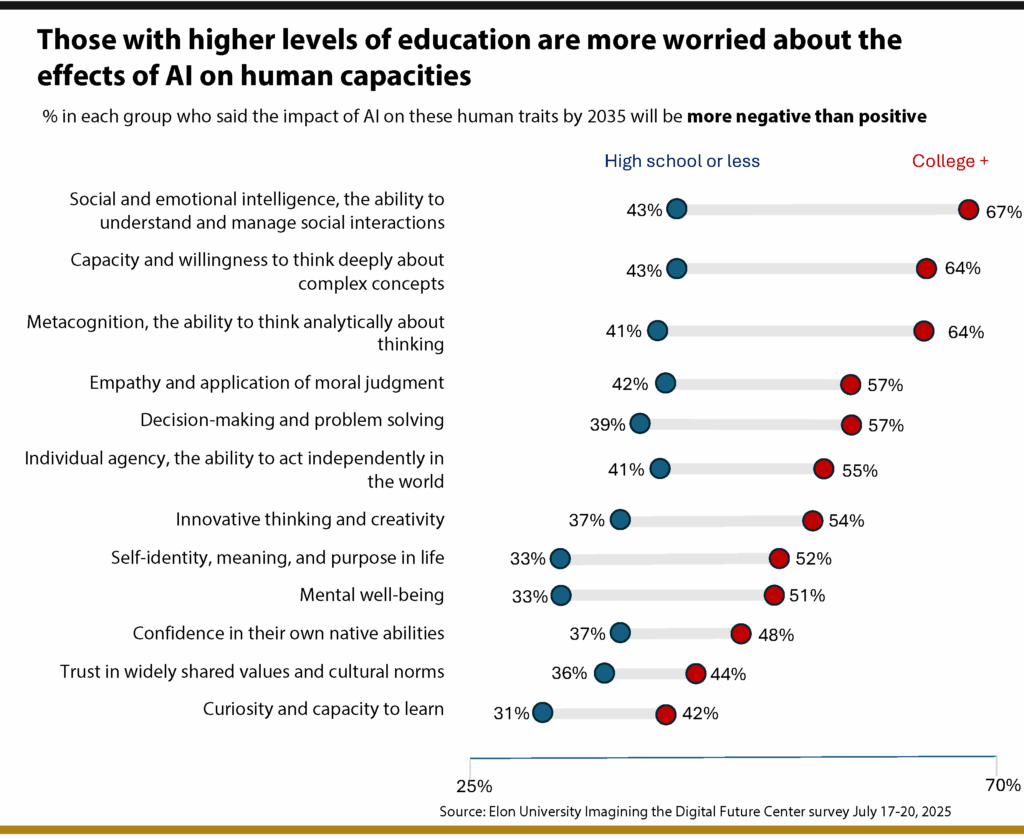Download this report (PDF) | Methodology and topline (PDF) | News release (PDF)
September 17, 2025
As artificial intelligence (AI) systems spread and become more capable, questions are being raised about the ways people’s uses of AI might affect the very essence of being human – the key cognitive capacities and behaviors that humans have come to value. This July 2025 survey by the Imagining the Digital Future Center found that American adults expect the changes in many human capacities in the coming AI-influenced decade will be potent and mostly negative.
Americans said the widespread adoption of AI systems will have significant impact overall on human capacities in the coming decade
About half (52%) of American adults surveyed said the impact AI will have on human capacities by the year 2035 will be revolutionary or deep and meaningful; 38% said the changes will be clear and distinct; and 7% said they expect that the changes will be barely perceptible. Just 3% said the impact will be inconsequential.
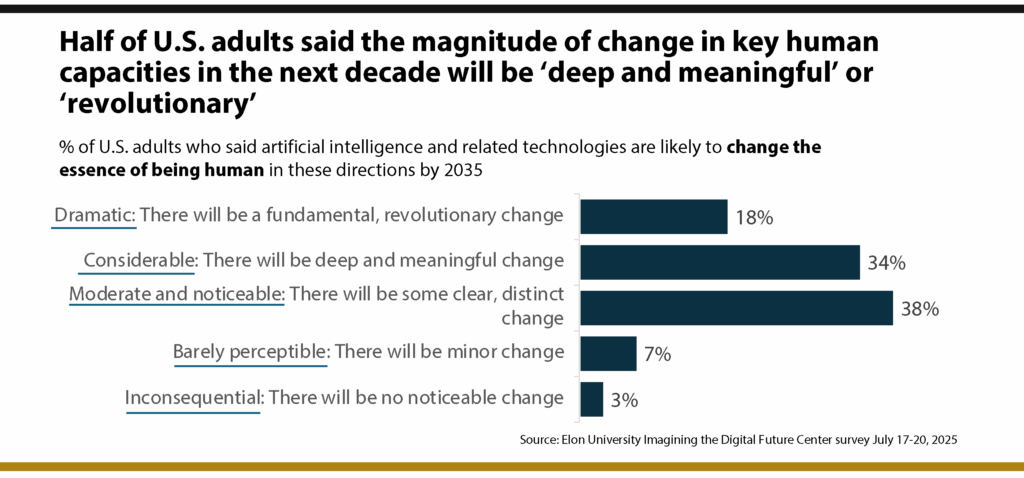
The deepening impact of the broader use of AI, for worse and for better
Some 41% of American adults said the changes in essential human traits due to the co-evolution of humans and AI will be for the better and the worse in fairly equal measures, while 25% said it will be mostly for the worse and 9% said they expect that it will be mostly for the better; 20% said they don’t know what the impact will be and just 5% said there will be little or no change.
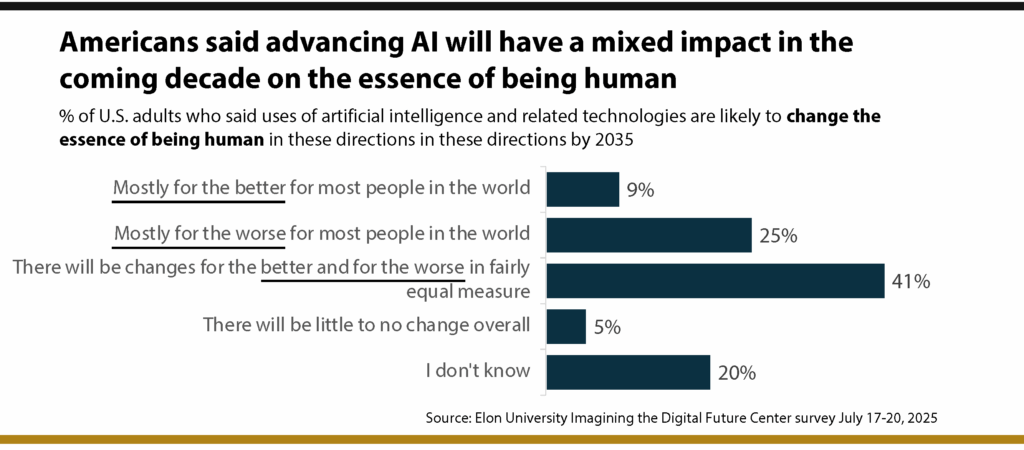
Widespread fears that humans’ co-evolution with AI will diminish key human capacities and behaviors – valued aspects of how people think, act and do things
Asked about the effects the broadening use and application of AI systems is likely to have on valued human traits in the coming decade, the public has far more negative than positive views in regard to the future of people’s social intelligence, metacognition, capacity and willingness to think deeply about complex concepts, human agency (the ability to act independently in the world), self-identity and purpose, and their trust in widely shared values and cultural norms.
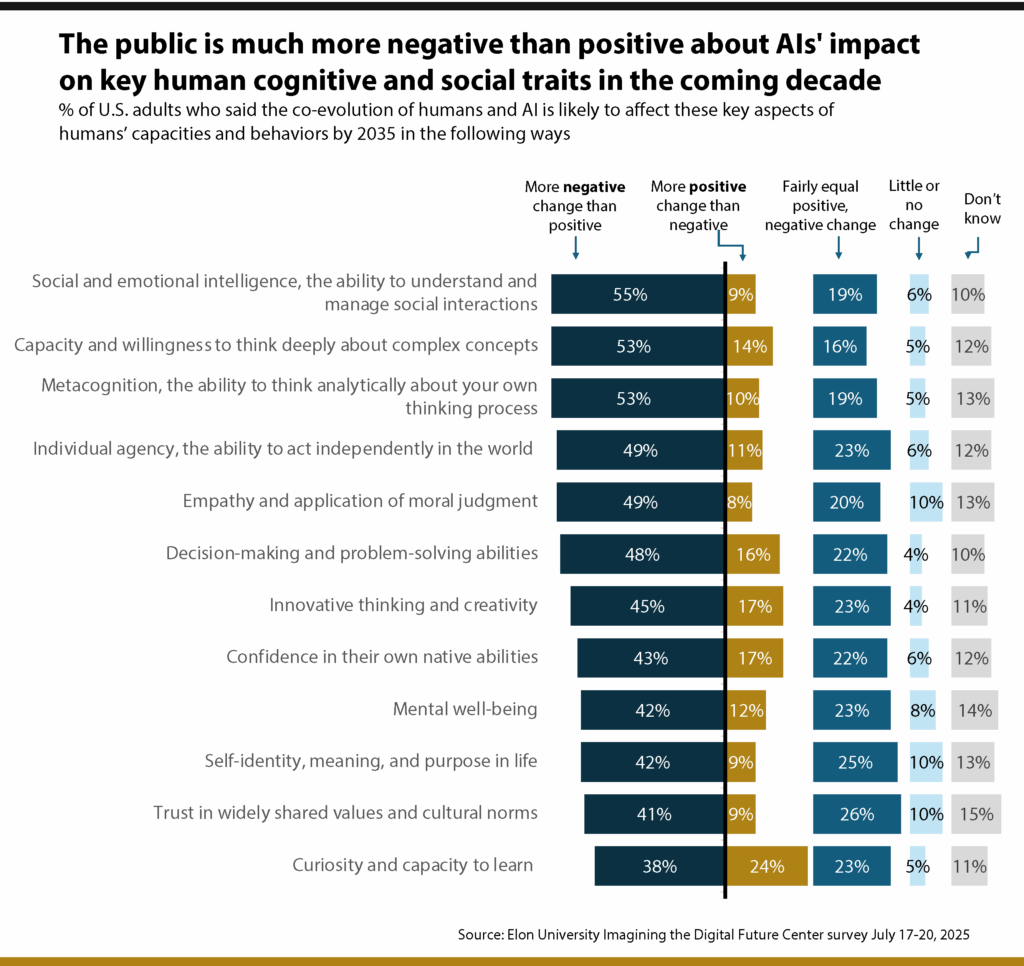
The general public is more likely than experts to worry about the way AI systems might affect some key human capacities and behaviors
The questions Imagining the Digital Future asked in this public opinion survey are identical to those asked in a detailed canvassing of experts six months earlier, the result of which are contained in the April 2025 report, “The Future of Being Human.” That allows us to compare expert and public opinion. This July 2025 survey found that most people in the general population are more negative than experts were in January 2025 about the impacts AI systems are likely to have on some key human traits by 2035 – specifically the impact of human and AI co-evolution on people’s metacognition, their skills in decision-making and problem solving, their capacity to think creatively and their curiosity.
The experts were somewhat more likely than the general public to worry about the impact of AI systems on people’s willingness to trust in widely shared values and cultural norms. Still, there were a number of areas in which experts and the general public generally expressed similar levels of concern about the impact of the use of AI, including the following:
- People’s social and emotional intelligence
- Their confidence in their native abilities
- Their empathy, capacity to think deeply about complex concepts, their self-identity
and purpose in life - Their mental well-being and human agency.
When compared with the earlier expert respondents, a notably higher share of the public said they were not sure how to answer some of the survey questions. It is important to note that rapid advances in AI systems, their adoption and the spread of news about them, even over just a six-month span in 2025, might account for some of the differences between the earlier expert views and the general public opinion that is reported here.
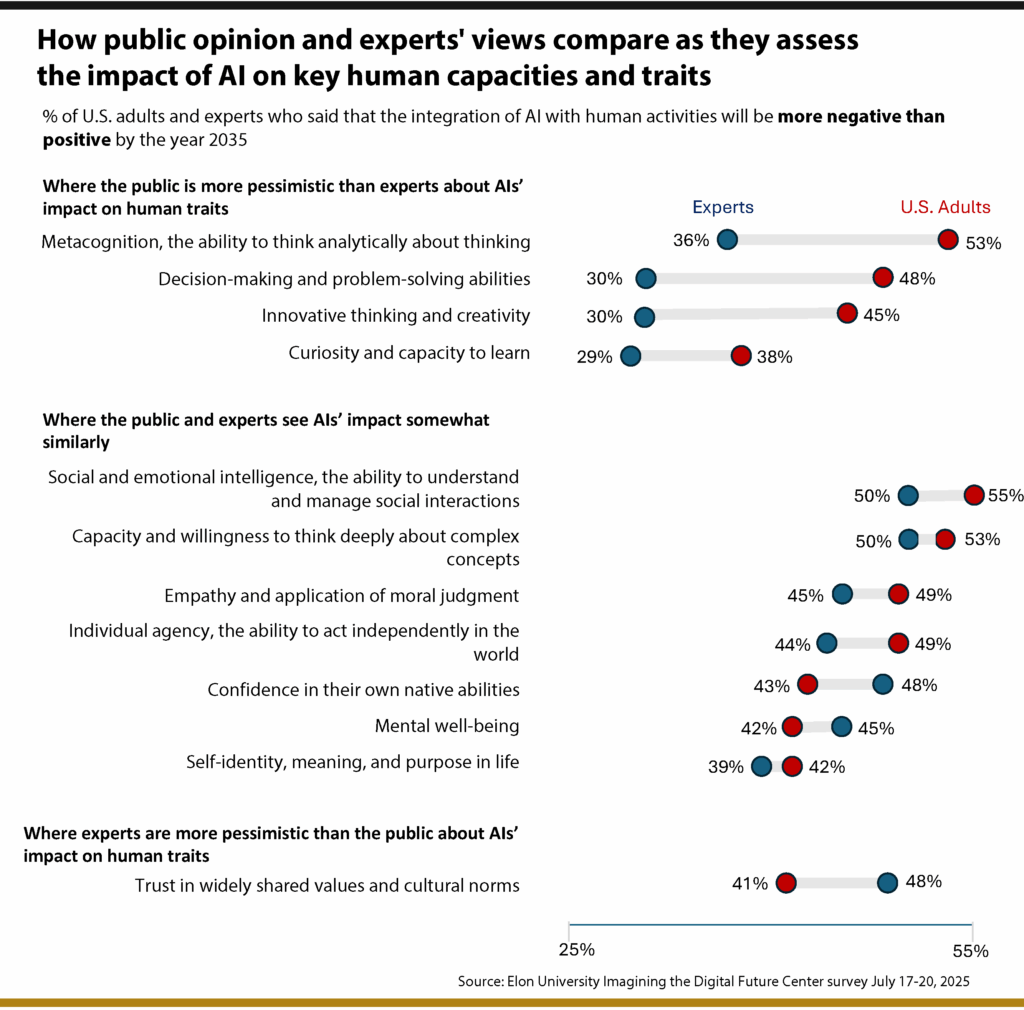
Those with higher levels of education were more likely than others to fear the negative impact of AI systems on key human capacities
Certain groups of the Americans surveyed were more likely than others to worry about the negative effects of AI systems on human capacities and behaviors than others. For instance, those with more formal education were more likely to say that AIs will have a more negative than positive effect. The findings are striking because they do not follow common survey measurements of attitudes about technological innovations. Typically, those with higher levels of education are more positive about the future impact of innovation than those with lower levels of education.
